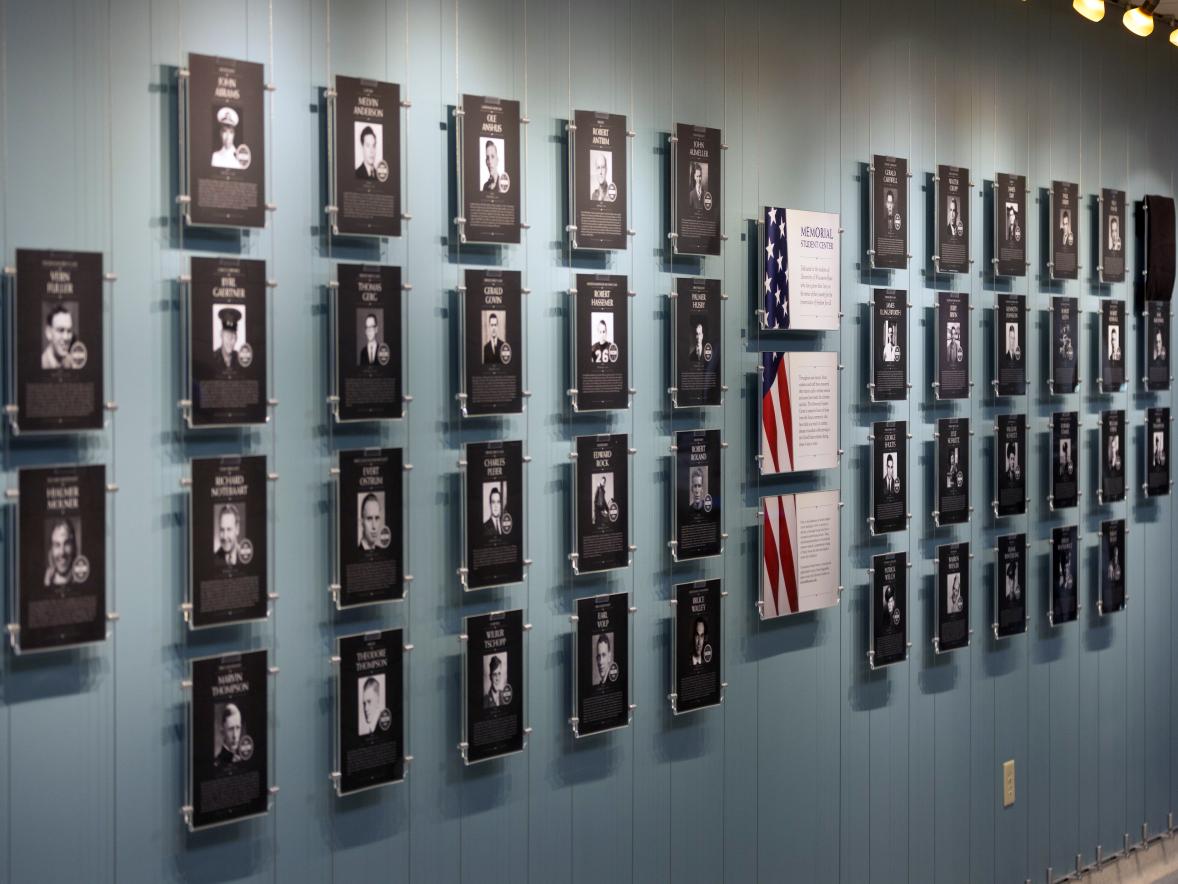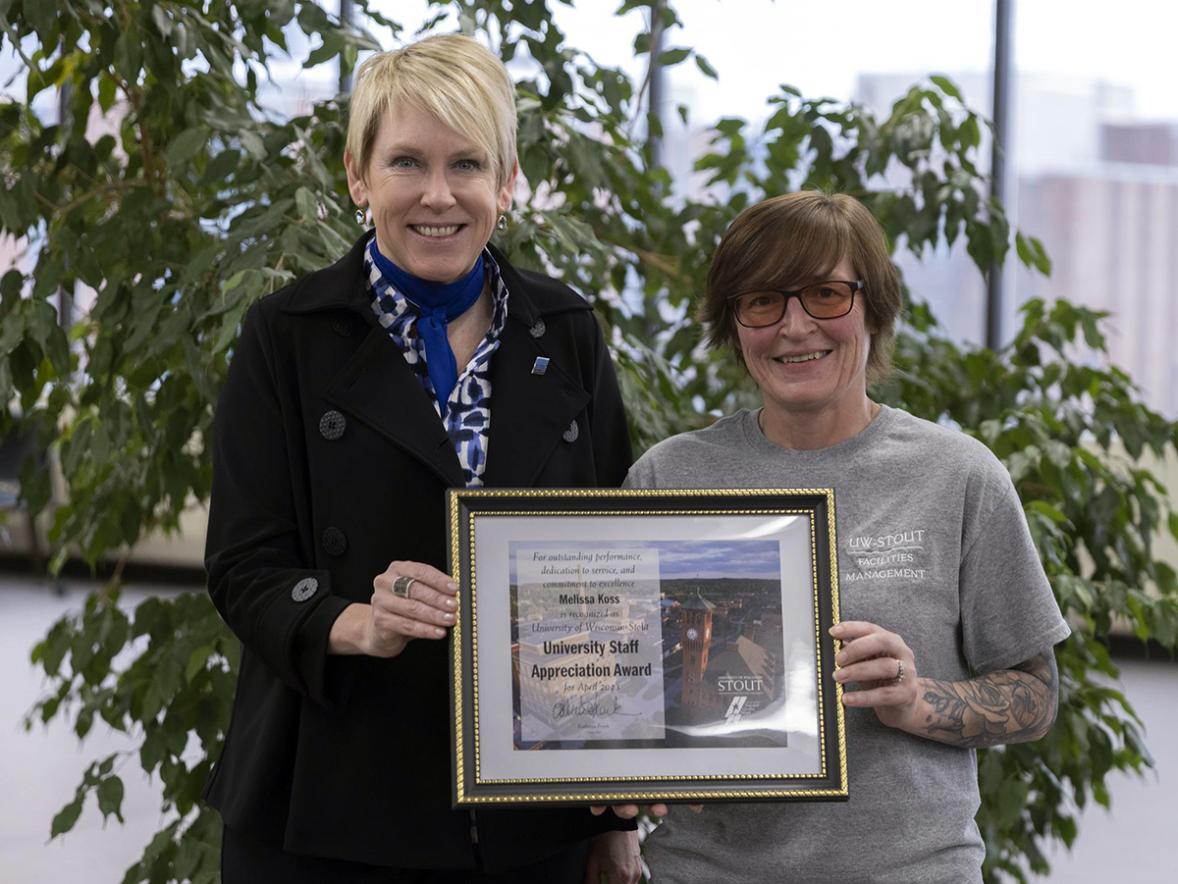University of Wisconsin-Stout Archives assistant Julie Hatfield recently donned white gloves and sorted through receipts, ledger books and letterhead taken from the former Knapp, Stout & Co. Company pay station located in Downsville.
Hatfield is taking apart the binders and filing the contents in the archives.
“The boxes were kind of dirty on the outside, but a lot of the papers inside are still good,” Hatfield said, noting there is rust on some of the papers from binders.
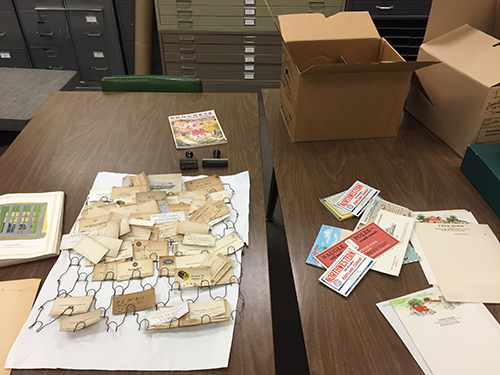 The materials, largely from 1890 through 1950, had been in the pay station building for years in boxes and recently were moved to University Archives thanks to a donation from the Dunn County Historical Society.
The materials, largely from 1890 through 1950, had been in the pay station building for years in boxes and recently were moved to University Archives thanks to a donation from the Dunn County Historical Society.
Frank Smoot, historical society executive director, said the collection will be protected from deterioration and preserved for future generations at UW-Stout.
“If someone is doing a robust history of Knapp Stout in Downsville they would want to see all the primary documents,” Smoot said, noting the museum would only keep one ledger to show to visitors rather than the entire collection. “Having the whole collection in the archive is more helpful for researchers.”
UW-Stout Archivist and Area Research Center Director Heather Stecklein said having the materials from the pay station will help people looking into genealogy or who are interested in learning what businesses were in Downsville.
“I think the key piece of this is it’s an extension of the Knapp, Stout & Co. Company,” Stecklein said. “It’s one of the reasons so many of us are here. It’s the reason this university exists.”
As the lumber industry declined, Sen. James Huff Stout opened Stout Manual Training School in 1891, and it evolved into UW-Stout.
Some pay station items had deteriorated. Most are from Frederick Borm, a lumber grader for Knapp, Stout after emigrating from Germany in 1883.
He eventually was sent to Downsville as a lumber salesman and general outside superintendent until the mill closed in 1900. He remained with the company until 1904 to help with clean-up. The last lumber raft went down the river in 1901.
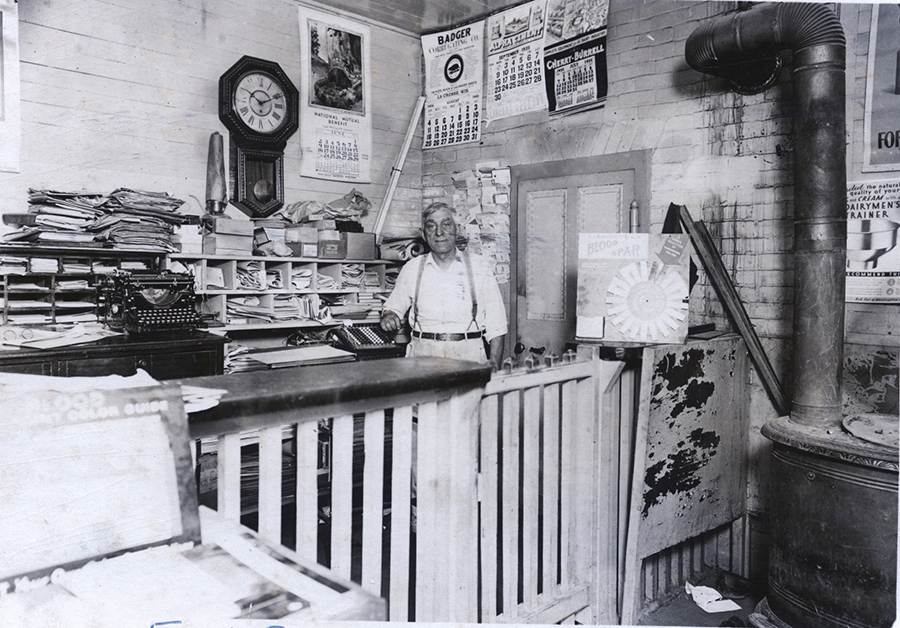
Borm purchased the retail yard of the lumber company and became a proprietor handling lumber and general builders’ supplies such as lath, shingles, windows, doors, building paper and cement.
Borm was also a leading citizen of Downsville. He was involved in the Downsville Cooperative Creamery as a secretary in 1904 and manager by 1924. In 1917 he was elected secretary, manager and treasurer of the Downsville Telephone Company. He was a member of the local school board from 1901 to 1918. He also was a stockholder in the Farmers & Merchants State Bank, organized in 1916. Borm died in 1953 at age 88.
The pay station was where employees were paid by Knapp, Stout, at one time the largest lumbering business in the world, Smoot said. On the other side of the building was an area for workers to buy items they may need.
Having records like those from Knapp, Stout shows who worked at the company and when. Also, those records help “give a slice of life” of the lumber mills. “For instance, historians can research camp inventories to track the evolution of logger meals,” Stecklein said.
“In the earliest years of the company, they subsisted primarily on molasses, beans and hard tack. As Menomonie, Barron and other nearby communities grew, loggers gained access to ‘town food’ including roast beef, mashed potatoes and vegetables,” she said.
Ledgers also give insight into the price of lumbering materials and how those have changed over the years, Stecklein said. “It’s a great local collection,” Stecklein said of Borm’s papers. “We are definitely going to see a history of businesses that came and went.”
The pay station building, still in Downsville, is owned by the historical society. “There are not a lot of pay stations left in the American landscape,” Smoot said. “It’s an unusual building. It’s amazing it’s standing at all. It’s about 130 years old. That is a testament to the historical society that they kept it up.”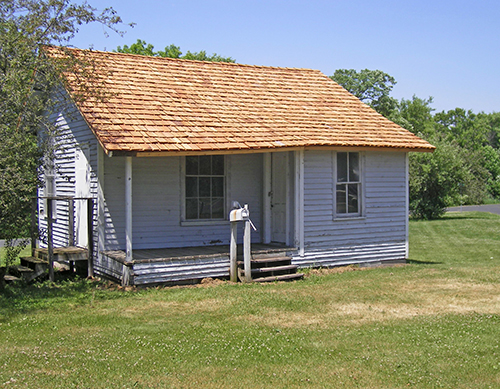
Hatfield said one unusual artifact from Borm is a wire rack that held business cards. He dated many of the cards when he received them. Some of the cards include the Wigwam Tavern in Eau Claire, Brooks and Ross Lumber Company of Schofield, Hardware Mutuals of Menomonie and Jarvis Lumber Company, 1938, of Eau Claire.
Borm kept a hardcover catalog of building materials from Carr Cullen Company of Minneapolis. Hatfield said those would be helpful to share with construction students so they see the different materials and products available in the past.
University Archives preserves the historical records of UW-Stout. The Area Research Center at UW-Stout is a cooperative project of the State Historical Society of Wisconsin and the university. The center maintains historic materials related to Barron, Dunn and Pepin counties and provides public research hours for its collections. Both are in the University Library. More information is available at the University Archives.
###
Photo
UW-Stout Archives assistant Julie Hatfield dismantles binders and files ledger information from Frederick Borm’s lumber company that was in the original Knapp, Stout and Co. Company pay station in Downsville. Borm worked at the giant lumbering company and then purchased the Downsville retail yard. UW-Stout photo by Pam Powers
Some of the items from Borm’s lumber company, including many area business cards.
Frederick Borm in his office, the former Knapp, Stout & Co. Company pay station in 1935. Photo courtesy of the Dunn County Historical Society.
The pay station in Downsville. Photo courtesy of the Dunn County Historical Society.





